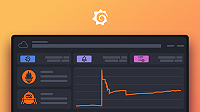Important: This documentation is about an older version. It's relevant only to the release noted, many of the features and functions have been updated or replaced. Please view the current version.
import.http
import.http retrieves a module from an HTTP server.
Usage
import.http "LABEL" {
url = URL
}Arguments
The following arguments are supported:
Blocks
The following blocks are supported inside the definition of import.http:
The > symbol indicates deeper levels of nesting.
For example, client > basic_auth refers to an basic_auth block defined inside a client block.
client block
The client block configures settings used to connect to the HTTP server.
bearer_token, bearer_token_file, basic_auth, authorization, and oauth2 are mutually exclusive, and only one can be provided inside of a http_client_config block.
no_proxy can contain IPs, CIDR notations, and domain names. IP and domain names can contain port numbers.
proxy_url must be configured if no_proxy is configured.
proxy_from_environment uses the environment variables HTTP_PROXY, HTTPS_PROXY and NO_PROXY (or the lowercase versions thereof).
Requests use the proxy from the environment variable matching their scheme, unless excluded by NO_PROXY.
proxy_url and no_proxy must not be configured if proxy_from_environment is configured.
proxy_connect_header should only be configured if proxy_url or proxy_from_environment are configured.
basic_auth block
The basic_auth block configures basic authentication to use when polling the configured URL.
password and password_file are mutually exclusive, and only one can be provided inside a basic_auth block.
authorization block
The authorization block configures custom authorization to use when polling the configured URL.
credential and credentials_file are mutually exclusive, and only one can be provided inside an authorization block.
oauth2 block
The oauth2 block configures OAuth2 authorization to use when polling the configured URL.
client_secret and client_secret_file are mutually exclusive, and only one can be provided inside an oauth2 block.
The oauth2 block may also contain a separate tls_config sub-block.
no_proxy can contain IPs, CIDR notations, and domain names. IP and domain names can contain port numbers.
proxy_url must be configured if no_proxy is configured.
proxy_from_environment uses the environment variables HTTP_PROXY, HTTPS_PROXY and NO_PROXY (or the lowercase versions thereof).
Requests use the proxy from the environment variable matching their scheme, unless excluded by NO_PROXY.
proxy_url and no_proxy must not be configured if proxy_from_environment is configured.
proxy_connect_header should only be configured if proxy_url or proxy_from_environment are configured.
tls_config block
The tls_config block configures TLS settings for connecting to HTTPS servers.
The following pairs of arguments are mutually exclusive and can’t both be set simultaneously:
ca_pemandca_filecert_pemandcert_filekey_pemandkey_file
When configuring client authentication, both the client certificate (using
cert_pem or cert_file) and the client key (using key_pem or key_file)
must be provided.
When min_version is not provided, the minimum acceptable TLS version is
inherited from Go’s default minimum version, TLS 1.2. If min_version is
provided, it must be set to one of the following strings:
"TLS10"(TLS 1.0)"TLS11"(TLS 1.1)"TLS12"(TLS 1.2)"TLS13"(TLS 1.3)
Example
This example imports custom components from an HTTP response and instantiates a custom component for adding two numbers:
declare "add" {
argument "a" {}
argument "b" {}
export "sum" {
value = argument.a.value + argument.b.value
}
}import.http "math" {
url = SERVER_URL
}
math.add "default" {
a = 15
b = 45
}


